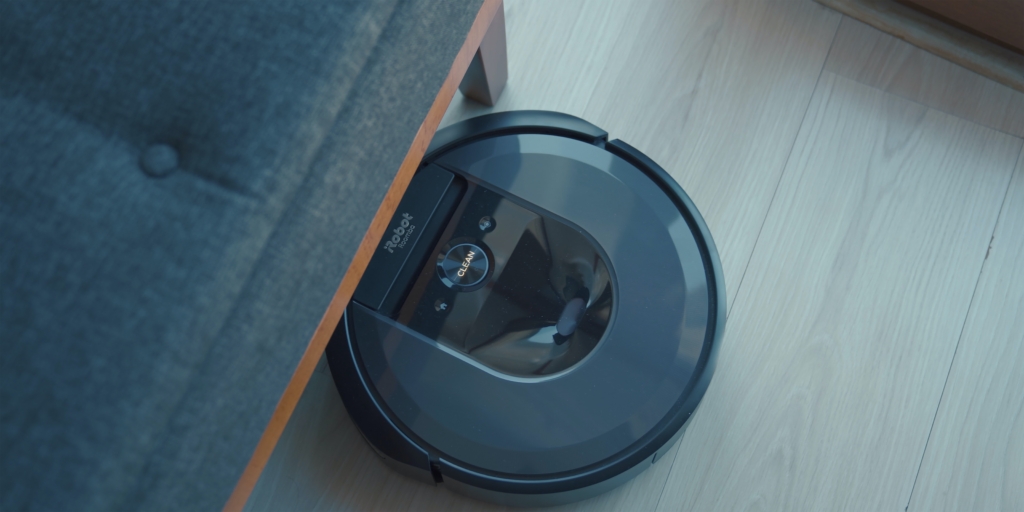
iRobot Corp. shareholders approved Amazon.com, Inc.’s $1.7 billion purchase of the Roomba maker on Oct. 17, while a pre-trial conference in a suit brought by one of iRobot’s shareholders opposing the deal is set for Nov. 4 in federal court in New York. The Federal Trade Commission has also cast a cloud over the acquisition, having made a second request for information, signaling it is taking a closer look at the deal. The FTC’s action earned cheers from consumer advocates who fear the deal would only further reinforce Amazon’s dominance in the digital economy and put consumer privacy at risk.
Shareholder Jon Moore sued iRobot and its board of directors on Oct. 4 saying the company violated federal law by authorizing an incomplete and misleading proxy statement with the Securities and Exchange Commission. Moore challenged the company’s financial projections and evaluations, and potential conflicts of interest of company insiders. Moore had wanted these alleged violations corrected before there was a vote (Moore v. iRobot, et al., 1:22-cv-08445-VEC, S.D. N.Y).
iRobot is the self-described “leading global consumer robot company,” with products including both vacuuming and mopping robots. iRobot says it has sold more than 40 million robots globally.
One of the most recognized companies in the world, Amazon’s e-commerce platform dominates the space and has a significant presence in the smart home arena. Amazon is widely criticized for competing with its own customers, i.e., merchants who sell on the platform, and using the sales intelligence it gathers from the platform in the process. Its divisions include North America, International, and Amazon Web Services, which all told generate $470 billion a year.
On Sept. 20, iRobot filed an 8-K form with the SEC announcing that it and Amazon had received requests for additional information – the usually unwelcome “second request” from the FTC. iRobot downplayed the request, saying it is simply “the next step in the regulatory process.” The FTC notice effectively extends by 30 days the waiting period imposed by the Hart-Scott-Rodino Act which requires companies and individuals to report stock purchases. iRobot said it and Amazon will “promptly respond to the Second Request” and continue to cooperate with the FTC in its review.
The FTC’s investigation received praise from a number of pro-consumer groups, from Public Citizen to the International Brotherhood of Teamsters, which said in a joint letter that the transaction represents “an urgent threat to consumer privacy and competition in the digital economy.”
The groups recall Amazon’s $1 billion acquisition of smart doorbell maker Ring in 2018. “By 2021, Amazon Ring had crushed competing smart doorbell makers” by using its massive ecommerce platform and integrating the service with Amazon Prime, the groups wrote. Giving Amazon further advantage, its Alexa smart home service – which controls everything from lights to thermostats to sound systems, and even a Roomba-like product – has some presence in a quarter of U.S. households.
Once again, Amazon is buying innovation, and not innovating, and using the acquisition to stifle or wipe out competitors. “By purchasing an already popular smart home device,” the consumer groups wrote, “[Amazon] will be able to extend the device’s prevalence through anti-competitive pricing while using personal consumer data to further entrench their monopoly power in the digital economy. By selling the Roomba brand at or near a loss via the Prime subscription, the company can access more personal consumer data to buttress its anti-competitive advantages online. In short, the deal will further entrench Amazon’s hold on the smart home technology ecosystem, eliminate competition in that sector and enhance the company’s monopoly power.”
Antitrust enforcers globally are paying a great deal more attention to the string of major acquisitions and what they see as anticompetitive conduct by dominant players like Amazon, Facebook, Google, and Apple. Private litigation is also attacking anticompetitive acquisitions and behavior. Companies that innovate their way to success too often use that success to buy or block new market entrants. At some point innovation creeps to a crawl and consumers are left with fewer choices and higher prices. Once dominant, there is little to stop companies from becoming harmful monopolies, other than aggressive government action and private parties – consumers, competitors, shareholders, and others – who enlist help from law firms with deep experience in antitrust, anticompetition, privacy, and mergers and acquisitions law.
Edited by Tom Hagy for MoginRubin LLP.
